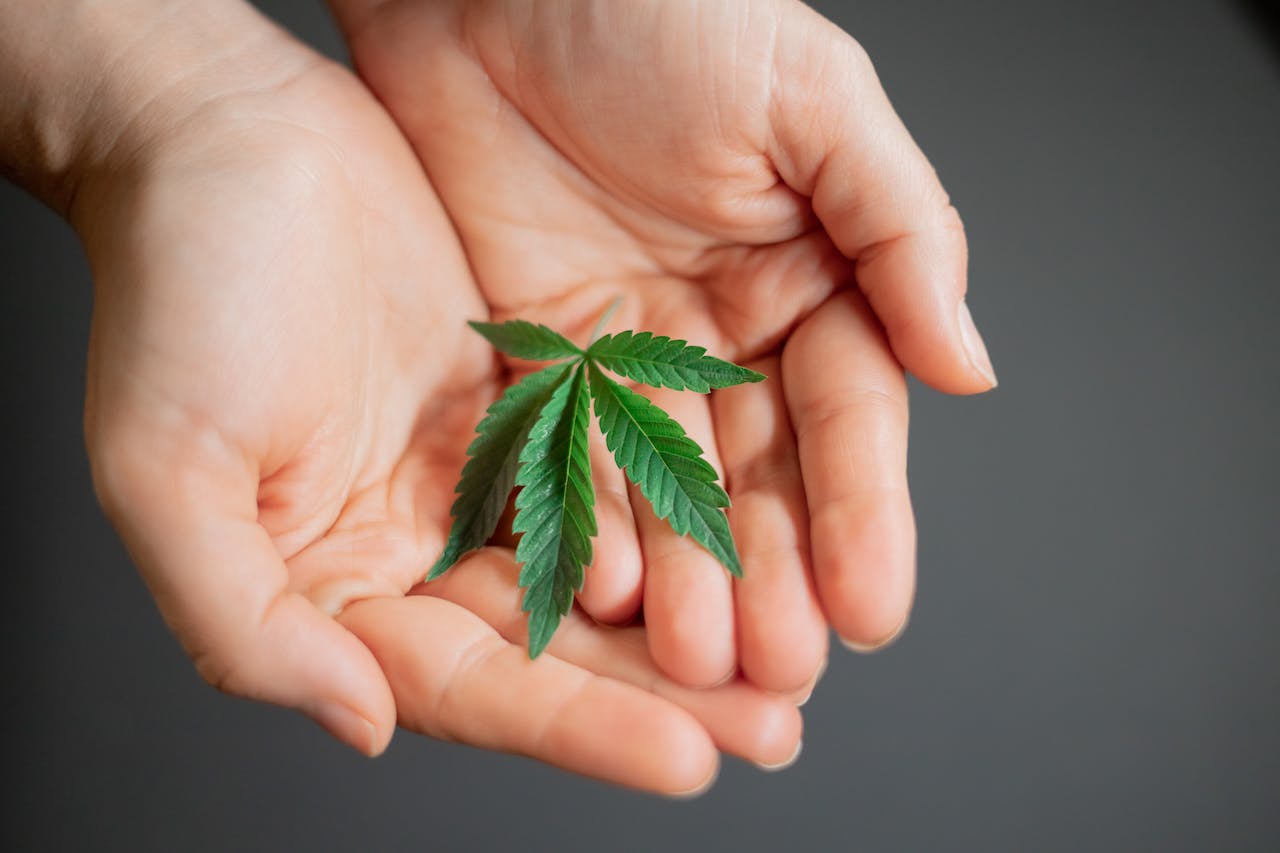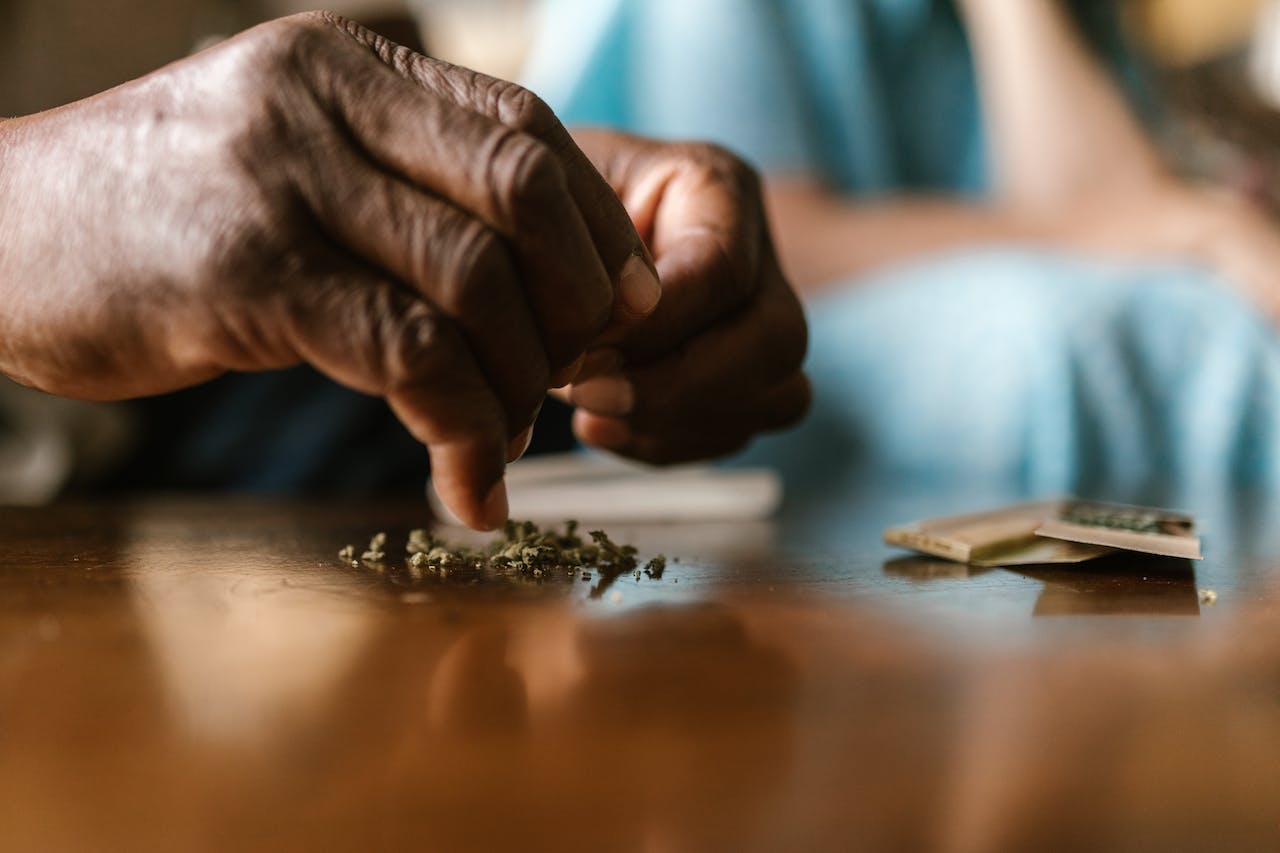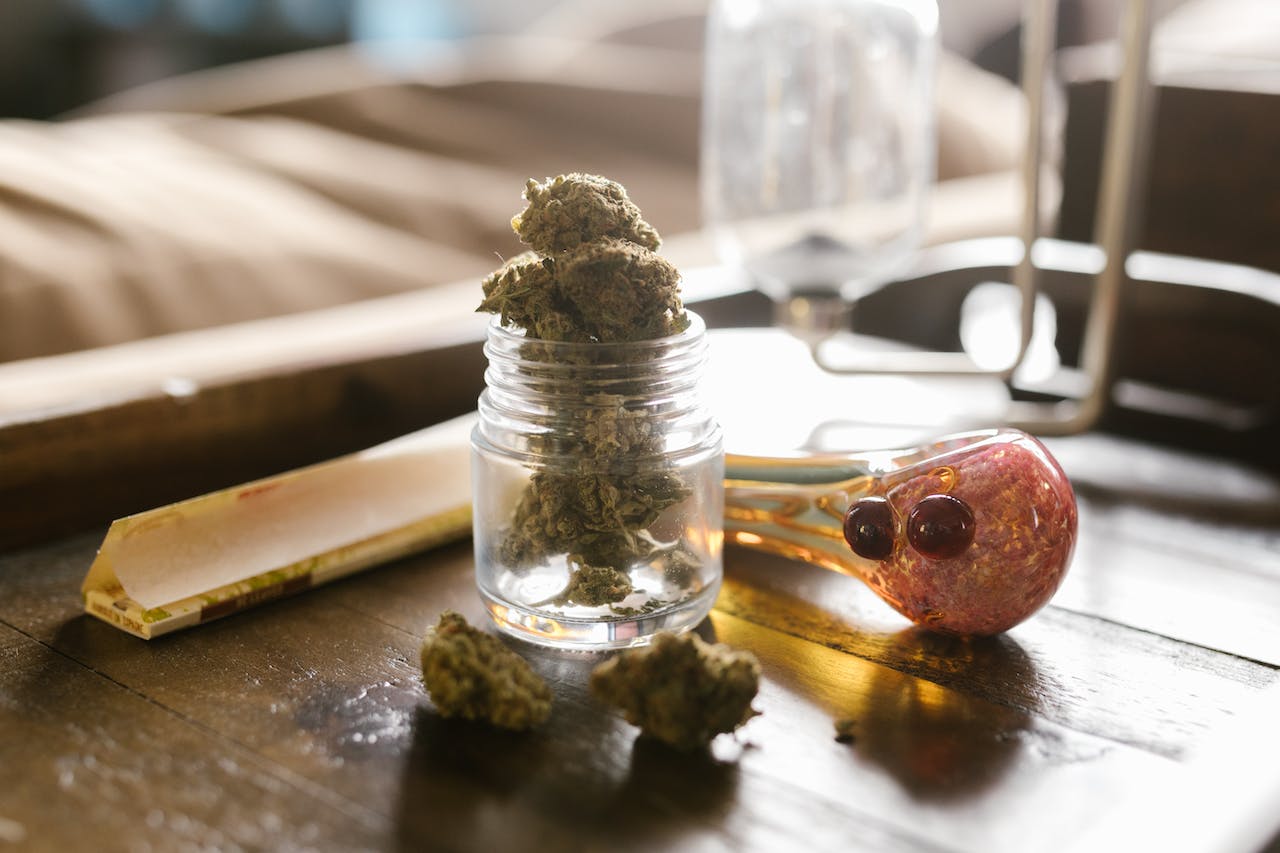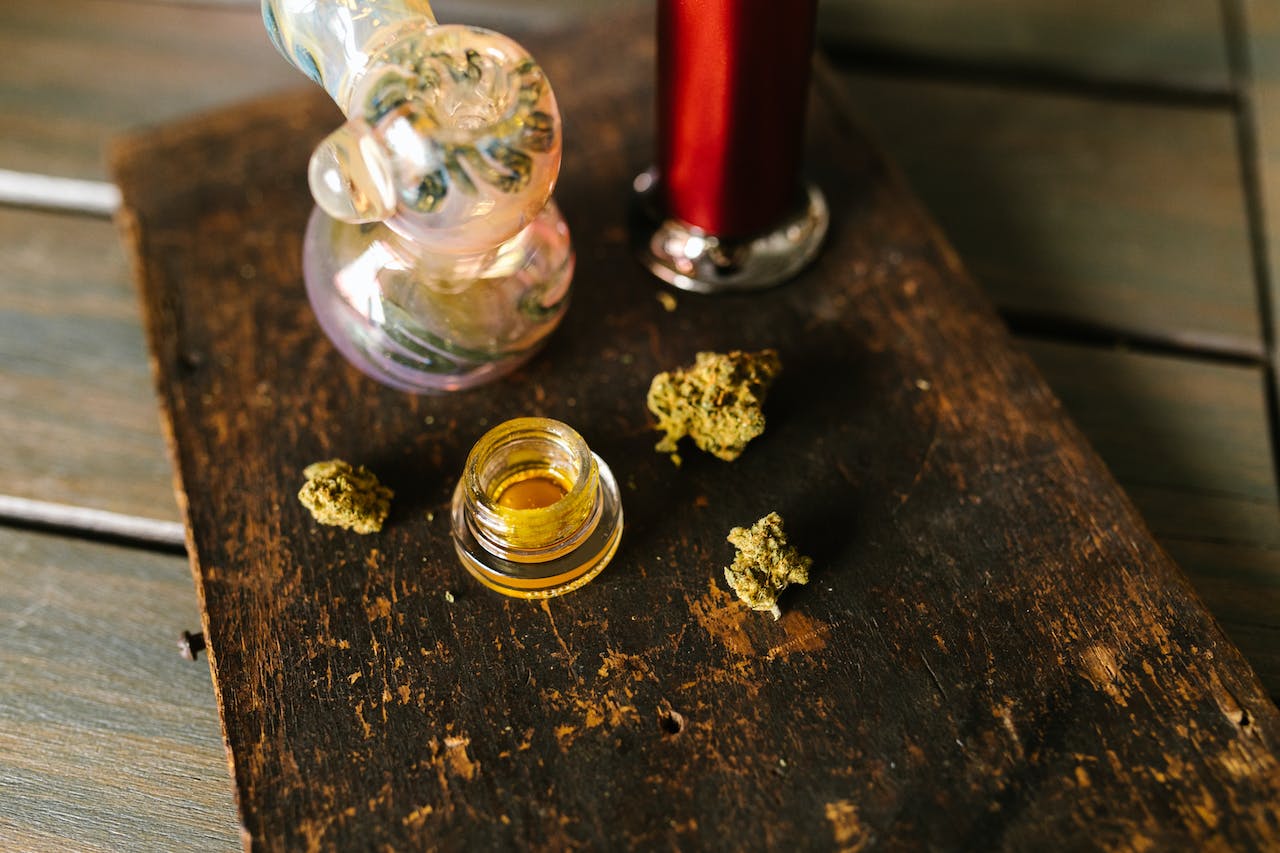Does THC Make You Sweat? Connection Between Cannabis And Perspiration
Does THC make you sweat? The question of whether THC, the active compound in cannabis, induces perspiration has been a subject of curiosity and inquiry. THC, or tetrahydrocannabinol, is renowned for its psychoactive effects, but its potential influence on bodily functions such as sweating remains a topic of debate.
Author:Suleman ShahReviewer:Han JuJan 19, 20242.1K Shares67.9K Views

In the vibrant landscape of cannabis exploration, one question often echoes through the corridors of curiosity: Does THC make you sweat? As we delve into the intricate nuances of the relationship between tetrahydrocannabinol (THC), the psychoactive compound in cannabis, and the body's perspiration response, we embark on a journey to decipher the mechanisms that underlie this intriguing phenomenon.
This article navigates the realms of scientific inquiry, personal anecdotes, and potential healthimplications to unravel the enigma surrounding THC and its impact on sweating. Join us as we unveil the secrets behind the perspiration paradox in the world of cannabis consumption.
What Is THC?
The primary cannabinoid in cannabis, abbreviated as THC, is delta-9-tetrahydrocannabinol. It is the chemical component that gives the intoxicating "high" associated with marijuana use.
The United States Drug Enforcement Administration (DEA) lists marijuana and other THC products as Schedule 1 prohibited narcotics. It indicates that the DEA views them as highly susceptible to misuse and without any present medicinal value, even though marijuana is allowed in many cities and states, including for medicinal reasons.
You may get THC in three primary forms: flowers or plants, hashish, and hash oil. Most people like the herbal kind. You may smoke it or put it in your food or drink; it's created from dried cannabis flowers and leaves, also called buds.
Made by compressing or refining the resin from the buds, the hash is a solid or paste-like material. When the resin in hash is extracted to its purest form, the result is hash oil, the most potent form.
What Is A High Amount Of THC For Cannabis?
There are a lot of reasons why people are turning to cannabis. Different strains of marijuana have varying amounts of cannabinoids, which many cannabis consumers take very seriously. Cannabidiol, or CBD, and tetrahydrocannabinol, or THC, are the two main and most well-known cannabinoids. Users often look for strains of marijuana that have a high concentration of THC.
The effects of THC are often amplified when the concentration of THC is higher. The intoxicating effects of marijuana are created by the psychoactive compound known as THC.
A lot of people are made to believe that cannabis strains with THC levels below 25% aren't as potent as those with more significant percentages. But you must know that there's more to purchasing cannabis than just looking for the strain with the most excellent THC content.
Where Do They Come From?
Hemp plants contain cannabidiol (CBD) and tetrahydrocannabinol (THC) by default. Nevertheless, the amounts of cannabinoids found in various species of these plants might vary. To illustrate the point, when people use medicinal cannabis with a high CBD content, they are essentially ingesting CBD derived from hemp, a subspecies of the Cannabis sativa plant.
The ratio of THC to CBD is often lower in other strains. The average potency of cannabis plants increased from around 4% in 1995 to 12% in 2014, according to a study done in 2016. Average CBD levels fell from 0.28 percent in 2001 to less than 15 percent in 2014.
THC Consumption Methods
Inhalation Techniques
Inhaling THC remains one of the most popular and rapid methods of consumption. Users can choose from various inhalation techniques, each offering a unique experience.
Smoking Cannabis Flower
Smoking cannabis flower is a traditional method where dried buds are rolled into joints or packed into pipes and smoked. The combustion process releases THC and other cannabinoids, delivering almost instant effects.
Vaporization
Vaporizationinvolves heating cannabis at lower temperatures than combustion, producing a vapor that is inhaled. This method minimizes the harmful byproducts associated with smoking while preserving the potency of THC.
Edibles And Ingestibles
Consuming THC through edibles provides a discreet and convenient option, offering a different onset and duration compared to inhalation methods.
THC-Infused Edibles
Edibles encompass a wide range of products, from gummies to brownies, where THC is infused into a food item. The effects take longer to manifest but tend to last longer, providing a more prolonged experience.
Tinctures And Sublingual Products
Tinctures are liquid extracts of cannabis that can be taken sublingually (under the tongue). This method allows for faster absorption into the bloodstream, resulting in a relatively quick onset.
Topical Applications
Topical products offer a localized approach, delivering THC directly to specific areas without the psychoactive effects associated with systemic absorption.
THC-Infused Lotions And Balms
Topical lotions and balms infused with THC are applied directly to the skin, offering potential relief for localized pain or inflammationwithout inducing a "high."
Concentrates And Extracts
For users seeking highly potent THC experiences, concentrates and extracts provide a condensed form of cannabinoids.
THC Distillate
THC distillate is a refined form of concentrate with exceptionally high THC content. It can be ingested, vaporized, or used in the creation of edibles.
Cannabis Oil
Cannabis oil, extracted from the plant, is versatile and can be used in various applications, including cooking or as a base for making edibles.
Transdermal Patches
Transdermal patches are an innovative delivery method that allows for a controlled release of THC through the skin, providing a steady and prolonged effect.
Time-Released THC Patches
These patches offer a gradual release of THC over an extended period, providing a consistent experience without the need for frequent dosing.
Nasal Sprays
Nasal sprays provide a fast-acting option for THC absorption through the nasal mucosa, offering a unique alternative to traditional consumption methods.
THC Nasal Sprays
THC nasal sprays are designed for quick absorption, making them suitable for individuals seeking a fast onset of effects without inhaling or ingesting.
Can Smoking THC Become An Addiction?
Misuse of cannabis is possible, just as with alcoholic beverages and nicotine. A cannabis use disorder may develop as a consequence of this. Studies reveal that 2% to 30% of cannabis users will have a condition, but experts are still unsure of the exact amount of hazard. The danger grows when you start using while you're a teenager, as it does with any condition related to cannabis.
Similar to other drug use disorders, cannabis use disorder may cause a wide range of symptoms. Here are a few things that could indicate a cannabis use disorder:
- Excessive and frequent marijuana use.
- Forcing oneself to stop.
- Consuming cannabis on a regular basis.
- Dealing with solid desires and impulses to consume cannabis.
- Cannabinoids' adverse effects on one's personal, academic, and professional life.
- Relationship problems that have recently emerged or are becoming worse.
- Persisting in cannabis usage despite adverse effects on one's mental health, physical health, or legal standing.
We have to utilize more potent cannabis strains or more of them to have the same effects.
Will You Feel Bad If You Quit Using This?
Responsible and safe cannabis usage is possible for the majority of individuals. Those who use cannabis often enough to build a physical dependency may experience withdrawal symptoms when they try to cut down or stop altogether.
The physical manifestations of cannabis withdrawal occur as the body adjusts to a life without the substance. Withdrawal from cannabis, like nicotine withdrawal, may cause the following symptoms:
- A shift in mood, including irritability.
- I am feeling worried.
- Trouble sleeping.
- I am feeling no hunger.
- Restlessness.
- Aches and pains throughout the body.
These symptoms often reach their height one week after cannabis withdrawal and may last for up to two weeks after that. A warning sign that your cannabis usage is becoming unsustainable is the onset of withdrawal symptoms.
Using less, using lower levels of THC, and cutting down on cannabis usage on a regular basis will help you prevent dependency and withdrawal symptoms.
Does THC Make You Sweat?
The question is, does THC make you sweat is a multifaceted inquiry, and delving into the relationship between THC and excessive sweating requires a nuanced exploration of the available evidence.
THC And Thermoregulation
THC, the psychoactive component of cannabis, has been associated with alterations in thermoregulation. As THC interacts with CB1 receptors in the hypothalamus, the body's central temperature control center, it may influence the perception of temperature.
This interaction can lead to an increase in body temperature, triggering the body's natural response to cool down-sweating. However, the extent to which THC contributes to excessive sweating may vary among individuals.
Anecdotal Reports
Anecdotal evidence from cannabis users presents a diverse range of experiences regarding the link between THC and sweating. Some users report a noticeable increase in sweating during the acute effects of THC, commonly referred to as the "high." However, the patterns are inconsistent, with variations in sweating intensity reported among different strains and modes of consumption.
THC And Dehydration
Excessive sweating, whether induced by THC or other factors, raises concerns about dehydration. Hydration is crucial to counteract fluid loss and maintain overall health. Individuals using THC, especially those prone to excessive sweating, should be mindful of their fluid intake to prevent potential dehydration.
The Entourage Effect
The entourage effect, a concept highlighting the synergistic interaction of various cannabis compounds, may contribute to the overall sweating experience. Terpenes, aromatic compounds found in cannabis, can influence the effects of THC.
THC As A Potential Therapeutic Agent For Hyperhidrosis
While the connection between THC and excessive sweating is complex, some researchers and individuals suggest that THC may offer therapeutic potential for conditions like hyperhidrosis characterized by uncontrollable sweating.
The potential lies in THC's ability to modulate the endocannabinoid system and influence neurotransmitters, creating a regulatory effect on sweating mechanisms.
Considerations For Individual Health
Individual health considerations play a crucial role in determining how THC affects sweating. Factors such as overall health, pre-existing medical conditions, and medication interactions can influence the relationship between THC and excessive sweating.
Individuals with concerns about sweating or using THC for specific health purposes should consult with healthcare professionals for personalized advice.
Benefits Of THC
Tetrahydrocannabinol (THC), the primary psychoactive compound in cannabis, has long been associated with its euphoric effects. However, beyond the realm of recreation, THC offers a spectrum of potential benefits that have garnered attention in both scientific research and anecdotal accounts.
Pain Management And Analgesic Effects
THC has demonstrated its efficacy as a potent analgesic, making it a valuable option for individuals dealing with chronic pain conditions. By interacting with the endocannabinoid system (ECS) and modulating pain perception, THC has shown promise in alleviating discomfort associated with conditions such as arthritis, neuropathy, and migraines.
Anti-Inflammatory Properties
Inflammation lies at the core of numerous health issues, from autoimmune disorders to chronic diseases. THC's anti-inflammatory properties contribute to reducing inflammation by interacting with the CB2 receptors of the ECS. This potential makes THC a candidate for managing conditions where inflammation plays a significant role.
Mood Enhancement And Mental Health
Beyond its physical benefits, THC has been recognized for its impact on mental health. The compound's ability to induce feelings of euphoria and relaxation can be harnessed for managing stress, anxiety, and depression. However, it's essential to approach THC use for mental health cautiously, considering individual responses and potential side effects.
Appetite Stimulation And Weight Management
For individuals dealing with conditions that suppress appetite, such as those undergoing chemotherapy, THC's well-known ability to stimulate appetite (the "munchies" effect) can be a welcome benefit. This property can contribute to maintaining a healthy weight and supporting overall well-being.
Neuroprotective Effects And Cognitive Function
Research suggests that THC may have neuroprotective properties, particularly in the context of neurodegenerative diseases like Alzheimer's. By reducing inflammation and oxidative stress, THC shows the potential to preserve cognitive function and protect the brain from age-related decline.
Sleep Aid And Insomnia Management
THC's relaxing effects extend to its potential role as a sleep aid. Individuals struggling with insomniaor sleep disturbances may find relief with THC, which can promote a sense of calmness and help in initiating and maintaining sleep.
Anti-nausea And Antiemetic Effects
Patients undergoing chemotherapy or dealing with conditions that induce nausea and vomiting can benefit from THC's antiemetic properties. These effects make THC a valuable addition to medical treatments where managing nausea is a crucial aspect of patient comfort.
Epilepsy And Seizure Management
THC has shown promise in managing seizures, particularly in individuals with epilepsy. By interacting with the ECS and regulating excitability in the brain, THC has become a subject of interest in the development of therapeutic options for seizure disorders.
Muscle Relaxation And Spasticity Reduction
Individuals with conditions characterized by muscle spasms and spasticity, such as multiple sclerosis, may find relief with THC. The compound's ability to induce muscle relaxation can contribute to improved mobility and overall quality of life.
Creative And Cognitive Enhancement
Some users report enhanced creativity and cognitive exploration with moderate THC consumption. While the effects can vary among individuals, some find that THC sparks novel ideas, artistic expression, and a unique perspective on tasks.
What Are The Effects Of THC/marijuana?
There are a lot of variables that determine how marijuana affects an individual, such as:
- Personal DNA.
- Your chronological age.
- The gender you are allocated when you are born.
- The potency and quantity of the weed.
- Methods of ingestion, vaping, or smoking of marijuana and its components.
- How often and for how long you've consumed marijuana?
In the event that you are currently administered any drugs or substances.
No two people's experiences with marijuana are ever going to be identical. Furthermore, the effects of marijuana might vary from one usage to the next, even in the same individual.
Marijuana usage is associated with both immediate and delayed effects, according to research. However, much is still unknown about them, particularly with regard to their long-term impacts.
Short-term Effects
Smoking marijuana rapidly transports THC from the lungs to the bloodstream. The cerebral cortex and other organs get THC via the bloodstream. If you consume THC orally, your body will absorb it at a slower rate; the effects will usually kick in 30 minutes to an hour after consumption.
THC is similar to anandamide, a substance that your body produces on its own. In certain brain regions, THC may "work" like anandamide by binding to specific receptors. Because of this, the THC in marijuana causes a cascade of effects by excessively activating regions of the brain with the most excellent density of these receptors.
Marijuana's potential short-term impacts on cognitive processes include:
- Modified perception, such as heightened color perception or more pungent smell.
- Perception of space and time altered.
- Mood swings and elation.
- Issues with thinking and problem-solving.
- Disrupted recall.
- Feeling lost and needing clarification.
- Feeling tired or relaxed (sedation).
- Queasy feeling.
- Problems in working together.
- Reaction time is reduced.
- Feeling overwhelmed with fear.
It is possible to have side effects after using marijuana.
- A hallucination is a delusional mental image of an external item or event.
- Beliefs that are not based on reality (delusions).
- Psychopathic phenomenon. Consistent usage of very potent marijuana increases your chance of this.
Other prevalent short-term effects of marijuana may include.
- Parched gums.
- I was feeling queasy.
- Racemy pulse (for as long as three hours after smoking).
- A rise in hunger levels.
Long Term Effects
What we know about marijuana's long-term impacts is limited at this point. Research has shown.
- The way your brain forms connections for certain activities, such as attention, memory, and learning, may be impacted by marijuana use throughout adolescence or early adulthood before the brain completely matures. These impacts could be long-lasting or even irreversible.
- Inhaling smoke from any substance, including marijuana, may cause permanent lung damage, bronchitis, and the narrowing or occlusion of blood vessels. Other vascular disorders, such as stroke and heart disease, are more likely in those who use marijuana. Injuries or even death to the lungs have been associated with vaping products containing THC.
- People who are already at increased risk for schizophrenia or other psychoses are far more likely to acquire these diseases if they use marijuana often.
- Chronic heavy THC users run the danger of developing cannabis hyperemesis syndrome, characterized by intense and frequent vomiting.
Researchers have shown that regular marijuana users are more likely to experience.
- Or gum disease, often known as periodontal disease.
- People who have sickle cell disease have pain crises more often.
- The process of spermatogenesis is impaired, which might impact fertility.
Frequently Asked Questions
Does THC Affect Body Temperature?
The effects of marijuana on body heat are generally minor. Some marijuana users suffer chilly tremors, while othersfeel warm. Lower THC dosages are unlikely to affect body temperature.
Can Edibles Cause Hot Flashes?
Hot and cold flashes follow excessive marijuana use, and you drop out beneath the covers. Do not wave a gun. Overeating is inevitable for marijuana-edible users. Quite nasty.
What Happens To THC When You Heat It?
Resin gland cannabinoid acids include an additional carboxyl molecule, making them psychoactive and inactive. These compounds must be decarboxylated by heating. It converts THCA to THC, CBDA to CBD, etc.
What Considerations Are Essential For Those Experiencing THC-Induced Sweating?
It's essential to stay hydrated, be mindful of individual health factors, and understand that the sweating response to THC can vary, providing a more informed and responsible cannabis experience.
Conclusion
The question "Does THC make you sweat?" unveils a nuanced relationship between cannabis consumption and the body's thermoregulation. THC, by interacting with CB1 receptors in the hypothalamus, disrupts the delicate balance of temperature control, leading to an altered perception of warmth and triggering the natural response of sweating.
While the connection between THC and sweating is established, its intensity and individual variations underscore the complexity of this phenomenon. As users navigate the sweaty landscape of THC consumption, understanding personal tolerance, dosage, and health considerations becomes crucial.

Suleman Shah
Author
Suleman Shah is a researcher and freelance writer. As a researcher, he has worked with MNS University of Agriculture, Multan (Pakistan) and Texas A & M University (USA). He regularly writes science articles and blogs for science news website immersse.com and open access publishers OA Publishing London and Scientific Times. He loves to keep himself updated on scientific developments and convert these developments into everyday language to update the readers about the developments in the scientific era. His primary research focus is Plant sciences, and he contributed to this field by publishing his research in scientific journals and presenting his work at many Conferences.
Shah graduated from the University of Agriculture Faisalabad (Pakistan) and started his professional carrier with Jaffer Agro Services and later with the Agriculture Department of the Government of Pakistan. His research interest compelled and attracted him to proceed with his carrier in Plant sciences research. So, he started his Ph.D. in Soil Science at MNS University of Agriculture Multan (Pakistan). Later, he started working as a visiting scholar with Texas A&M University (USA).
Shah’s experience with big Open Excess publishers like Springers, Frontiers, MDPI, etc., testified to his belief in Open Access as a barrier-removing mechanism between researchers and the readers of their research. Shah believes that Open Access is revolutionizing the publication process and benefitting research in all fields.

Han Ju
Reviewer
Hello! I'm Han Ju, the heart behind World Wide Journals. My life is a unique tapestry woven from the threads of news, spirituality, and science, enriched by melodies from my guitar. Raised amidst tales of the ancient and the arcane, I developed a keen eye for the stories that truly matter. Through my work, I seek to bridge the seen with the unseen, marrying the rigor of science with the depth of spirituality.
Each article at World Wide Journals is a piece of this ongoing quest, blending analysis with personal reflection. Whether exploring quantum frontiers or strumming chords under the stars, my aim is to inspire and provoke thought, inviting you into a world where every discovery is a note in the grand symphony of existence.
Welcome aboard this journey of insight and exploration, where curiosity leads and music guides.
Latest Articles
Popular Articles





